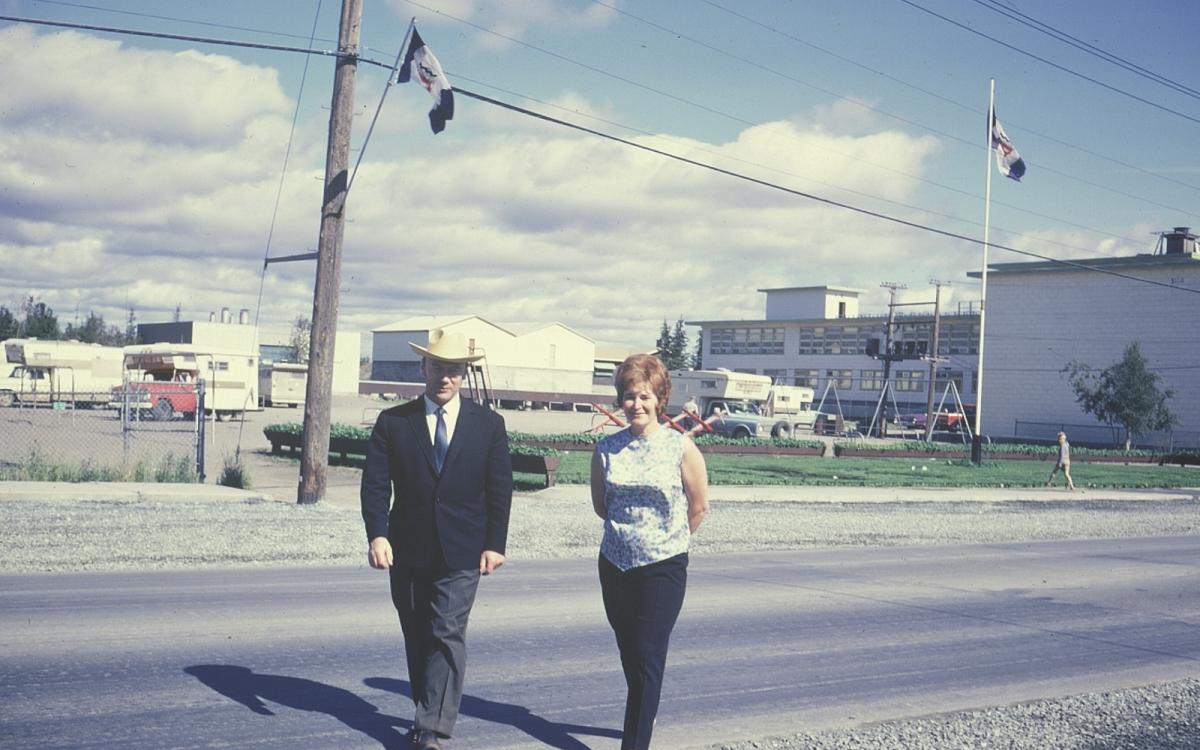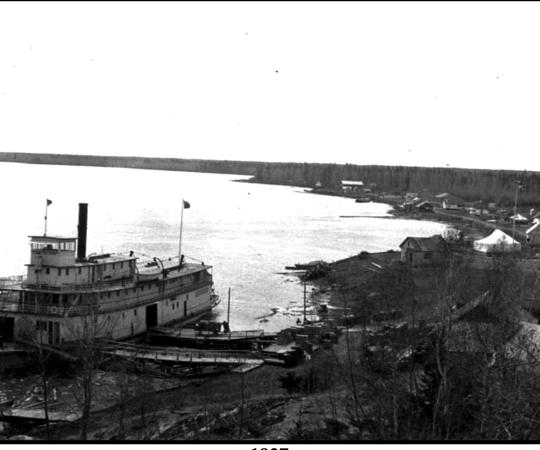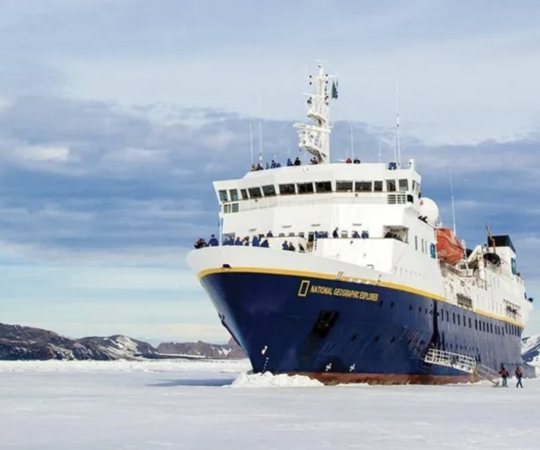In his letters and writings between 1968 and 1972, Boris Dotsenko freely expresses his opinions on a variety of Northern issues and international events. Some of these views feel eerily prescient today.
For instance, Murray Glick, a student of Dotsenko’s at Yellowknife Public School and later a friend, says his former teacher was disgusted that humans burned oil for energy. Dotsenko, briefly employed in Edmonton as a consultant with the Alberta Research Council to improve extraction techniques in the oil sands, told Glick that “we could solve world hunger and get all the medicines we need from oil.”
Here are just a few of Dotsenko’s thoughts from this time period, edited and condensed for clarity:
On Canadians:
“People don't take facts as hard facts, but quite often they seem to believe in what they want to believe. For example, I was recently discussing the polar bear situation in the Arctic [with someone]. One of the attitudes of people in the North is that all this concern [in the south] about the extermination of polar bears is just a fad. They don't really understand the situation… Polar bears are going into communities and making a nuisance of themselves. They sometimes attack human beings and endanger the lives of children. This is a fact.
And I told this person I was discussing the situation with that often it’s not a question of aggression of human beings against polar bears, but polar bears showing aggressive tendencies towards human beings. And the human beings, in defence, have to exterminate or get rid of them. The person said, flatly, ‘I don't believe you.’ And I said, ‘If you don't believe me just go there and see and then perhaps you can believe what you right now don't want to believe.’
And this is an attitude that is common in Canada—that people do not believe what they don't want to believe.”
- From an interview transcript with Peter Worthington, 1971 or 1972
On Northern development:
“I was deeply interested in the North. However, I thought that Canada would pay more attention to scientific developments in the North. It is not necessary to put immediate industrial development in the forefront in the North, but it is necessary to make really profound geophysical and geological and nuclear and physical study of the North, in the sense of preparing a good survey of the resources and industrial potential of the North…
[U]nder the control of the government or corresponding agencies, it would be possible to make proper arrangements organizing work and putting in ground plans to correlate developments of the North without violating the ecological pattern of the North. And, from the other side, using [a] good cautious attitude to the tremendous potential that exists in the North. The potential which is available is now slipping away. What happens when you start oil refineries and things [is] people simply exploit, take money and get out. They should be using money to study and to find the most reasonable way to use the resources and then, without disturbing the general ecological balance or to a minimal disturbance, to use the resources in such a way to contribute to a more harmonious development of the North…and to preserve this huge natural sanctuary so it will be a tremendous outcome. [F]or when everything is… well-balanced, then one can use the North to support development without destroying the natural benefit.”
- From an interview transcript with Peter Worthington, 1971 or 1972
“[The North] stores gigantic amounts of oil, gas, and coal, which should be used not as a fuel, but as a raw material for the chemistry of synthetic polymers, which could produce big quantities of cheap food—with taste and nutritious properties better than, say, natural beef—and also such materials as organic glass, which is more transparent than usual [glass], but… hard and durable as a steel. …
This is quite possible in the North. [The] presence of uranium ore as [an] energetic base and unlimited… amounts of water makes the North the most promising… natural place for the development of [a] Nuclear-Synthetic Chemistry Complex. This also will attract many people to the North, and it will make [the] North not only self-supporting, but even feeding an industrial place of Canada, when now it is living in a big part on the subsidies from the central government.
It would be possible to begin with the organisation of an educational centre/college, initially, and then University of the North, with such departments as chemistry and physics; synthetic polymers; … nuclear physics and engineering; … construction works and communications; and naturally, … geology and mineral materials and land exploration. Very important should be the organisation of [a] separate department of antipollution studies, which should be connected very closely with the department of chemistry and nuclear physics. …
I would be really happy to work in this direction and to give this project all my small abilities… If it is realized, it would be not even a revolution—it will be a peaceful transformation of the society on a new, more developed industrial and scientific basis. Don’t think, please, that I'm getting crazy here—evidently the solution of the problem of food lies in the synthetic chemistry. The question is where to begin from and when. And I think the answer is in the North and the sooner, the better.”
- May 24, Letter to Peter Worthington
On Russia’s view of Ukraine:
“The development of ‘Great Russian’ chauvinism and anti-Semitism is a characteristic of the system. The Russian influence and authority can be felt everywhere in all the ‘national’ republics of the USSR, especially in the Ukraine where the standard practice is that for every Ukrainian director of an establishment, there are several Russian deputies and assistant directors with whom the real power lies. A significant portion of the Ukraine's national product is taken without compensation, or with payment being in the form of heavy machinery for factories that work for Russia. …
Any kind of Ukrainian national movement is considered as high treason—the worst crime in the eyes of Soviet authorities. And punishment is severe. I was present at a party meeting at the trial of a student whose only crime was that he had helped gather workers to listen to young Ukrainian writers. This student later disappeared. There are endless similar cases.”
- Letter to Soviet leaders, August 1970










